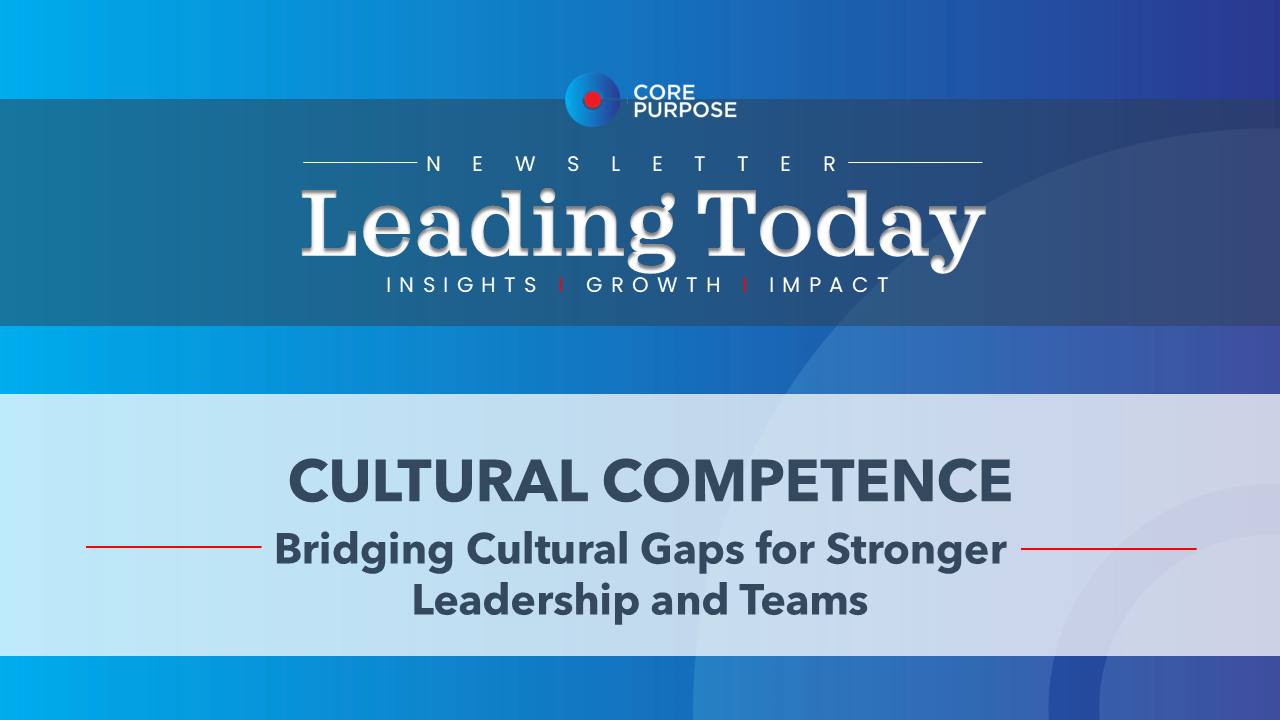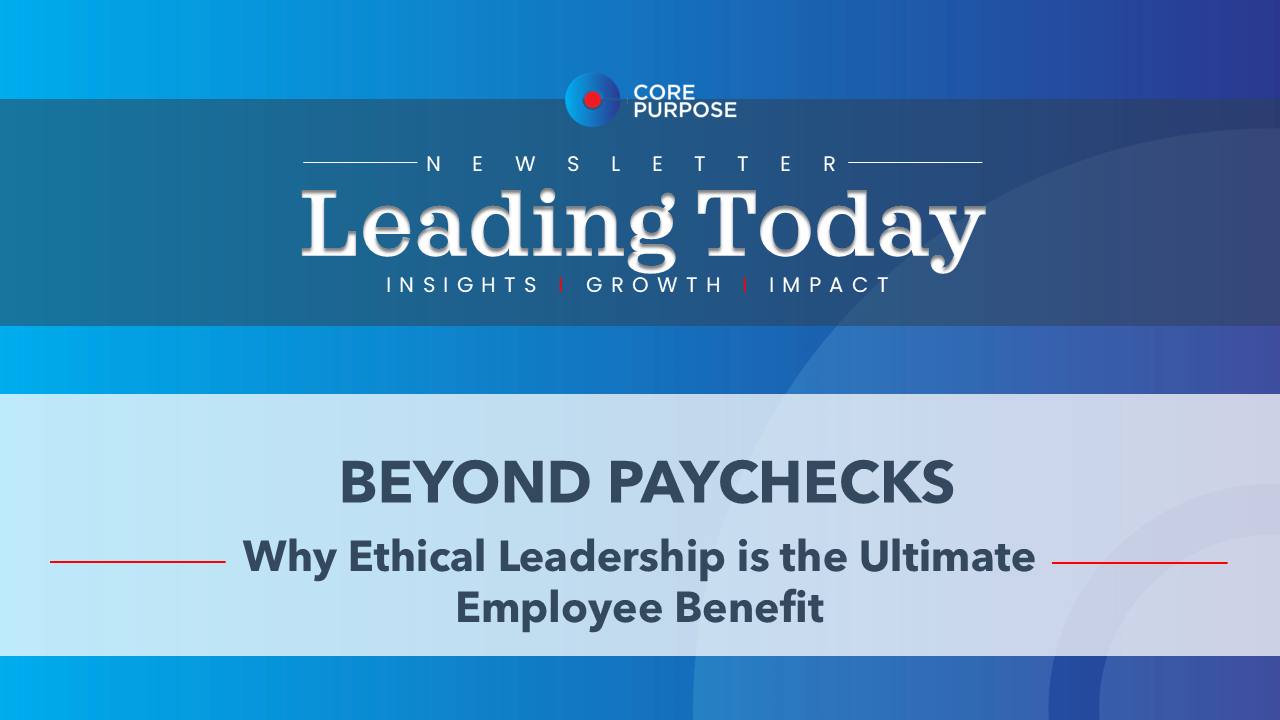Beyond the Illusion of Integrity
What Ethical Leadership Really Means
Most leaders believe they are ethical. But belief isn’t enough—ethical leadership requires intention, clarity, and action. It’s not about looking good on paper or following compliance checklists. It’s about making the right decisions when no one is watching and leading in a way that earns trust, not just authority.
If you think ethical leadership is just about avoiding wrongdoing, you’re missing the point. It’s about how you show up, how you influence, and how you hold yourself accountable—especially in high-stakes situations.
The reality? Leadership without ethics is just power. And power alone is dangerous.
Core Principles of Ethical Leadership
- Integrity – Acting consistently with core values, even when no one is watching.
- Transparency – Communicating openly and honestly, avoiding deception or manipulation.
- Accountability – Taking responsibility for actions and decisions, including mistakes.
- Fairness – Ensuring equal treatment and opportunities, without bias or favouritism.
- Respect for Others – Valuing diverse perspectives and treating people with dignity.
- Empathy – Understanding and considering the needs and feelings of others in decision-making.
- Sustainability – Making decisions that benefit not just the present but also the future.
- Courage – Standing up for what is right, even in the face of opposition or difficulty.
Why Ethical Leadership is Non-Negotiable
The world has changed. Employees, clients, and stakeholders demand transparency, fairness, and accountability. They don’t just follow leaders—they scrutinise them.
- Leaders who lack ethical clarity create toxic work cultures, high turnover, and disengaged teams.
- Leaders who master ethical decision-making build trust, inspire loyalty, and drive sustainable success.
- Organisations with ethical cultures don’t just survive—they thrive.
So the question is: Are you leading with integrity, or just managing perception?
The Ethical Leadership Shift: From Authority to Authenticity
Ethical leadership isn’t about following the rules—it’s about becoming the kind of leader people trust, respect, and want to follow. If you think ethical decision-making is “common sense,” you’re underestimating how human psychology works.
Four Ways Ethical Leaders Think Differently
Ethical leaders train their decision-making like a muscle. Here’s how they think differently from the average leader:
-
They Lead Themselves First
➡ Poor leaders make decisions based on impulse and external pressure.
➡ Ethical leaders develop self-awareness and align their choices with clarity, values, and purpose. -
They Communicate for Trust, Not Control
➡ Poor leaders manipulate information to maintain authority.
➡ Ethical leaders foster transparency, honesty, and psychological safety—even when the truth is uncomfortable. -
They Set Ethical Boundaries, Even When It’s Unpopular
➡ Poor leaders say yes to everything, compromising integrity under pressure.
➡ Ethical leaders know when to say no, making values-driven decisions instead of convenient ones. -
They Navigate Conflict with Fairness, Not Ego
➡ Poor leaders either avoid conflict or bulldoze through it.
➡ Ethical leaders mediate, de-escalate, and turn challenges into opportunities for growth.
The Four Pillars of Ethical Leadership
Ethical leadership is a skill set—not a personality trait. The Ethical Leadership Blueprint is built on four key pillars that separate leaders worth following from those who crumble under pressure:
-
🔻 Ethical Self-Leadership
✔ You cannot lead others until you master yourself.
✔ Develop emotional intelligence, set clear intentions, and align leadership with your values.
✔ Without this, you’ll lead with impulsivity, inconsistency, and weak credibility. -
🔻 Ethical Communication & Trust
✔ Leadership is influence, and influence is built on trust.
✔ Communicate with clarity, honesty, and deep empathy—or lose your team before you even begin.
✔ Without this, you’ll create disengaged, disconnected teams. -
🔻 Ethical Boundaries & Decision-Making
✔ Saying yes to everything leads to burnout and compromise.
✔ Set boundaries, make tough decisions, and stand firm in your values—even when it’s uncomfortable.
✔ Without this, you become a leader who pleases everyone but leads no one. -
🔻 Ethical Conflict Resolution & Mediation
✔ Leadership is tested in conflict.
✔ Do you avoid it, react emotionally, or turn it into an opportunity for growth?
✔ Ethical leaders navigate disagreements with fairness, clarity, and confidence.
Are You Ready to Lead With Integrity?
The difference between a mediocre leader and an extraordinary one isn’t talent, it’s ethical mastery.
The Ethical Leadership Blueprint isn’t just another leadership programme, it’s a structured transformation journey. It challenges you to shift your mindset, sharpen your skills, and apply real-world strategies that create measurable change.
✔ No fluff. No empty leadership clichés.
✔ Just bold, real, actionable leadership transformation.
Take the Next Step Is Yours
If you’re serious about leading with integrity and impact, this programme will equip you with the tools, mindsets, and frameworks to do just that.
📌 Explore The Ethical Leadership Blueprint (TELB) and start creating a high-trust workplace today!
The Ethical Leadership Blueprint™ Group Coaching Programme
Until next time,
The 'Leading Today' Newsletter team at Core Purpose.







Responses